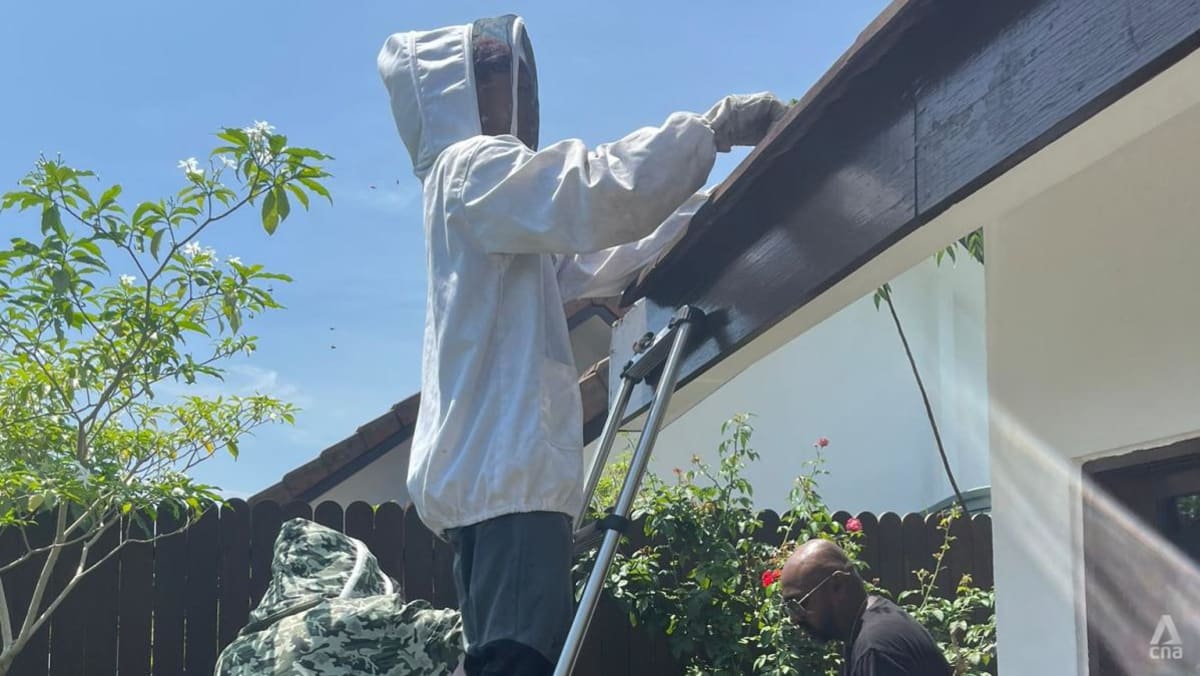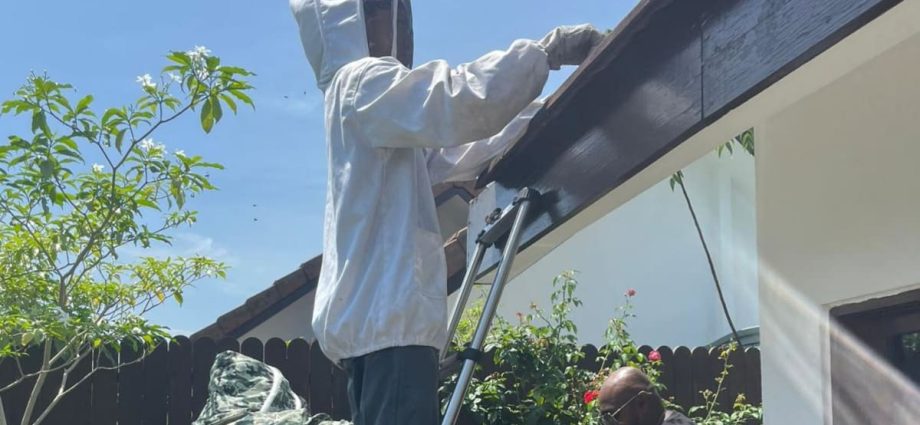
The 64-year-old is in the midst of collaborating with the Singapore University of Social Sciences to come up with a Continuing Education and Training (CET) course on beekeeping.
The course will be rolled out by November and it will include learning about how to relocate bee hives.
His hope is that those who learn about bees can pursue a business through the knowledge gained, he said.
“Relocation doesn’t pay that well yet. But I hope to raise the status of this. This is a very dedicated service,” he said.
SKILLS NEEDED FOR RELOCATION
Many people contact exterminators with their beehive problems but these companies tend to outsource the business as the skills required are completely different from extermination.
“Most homeowners, when they have bee nests in their houses, they just want it gone. They’re not so concerned about whether it’s saved, or it is killed. Their concern I will say a lot of the time is price, they just want to pay a market rate of about S$100 (US$74) to have it gone,” said beekeeper Clarence Chua.
Bee hive relocation, on the other hand, comes at a higher price tag of up to S$450 because of the risk and equipment involved.
Mr Chong, who also provides bee relocation services, said that the process is “not that simple”.
“If it’s (the hive) easily accessible, it’s easier, the task can be completed within a short period of time. But some of them are more difficult (to handle) so they take a lot of time and effort because it takes a lot of time. And then most people are not willing to pay the amount,” said Mr Chong.
RELOCATION AS FIRST OPTION
Mr Chua, who is also founder of The Sundowner, a nature-based experience centre, said he has been twice as busy in the past few months, an uptick he takes as a good sign.
It means more customers are now thinking twice about killing off hives, he said.

